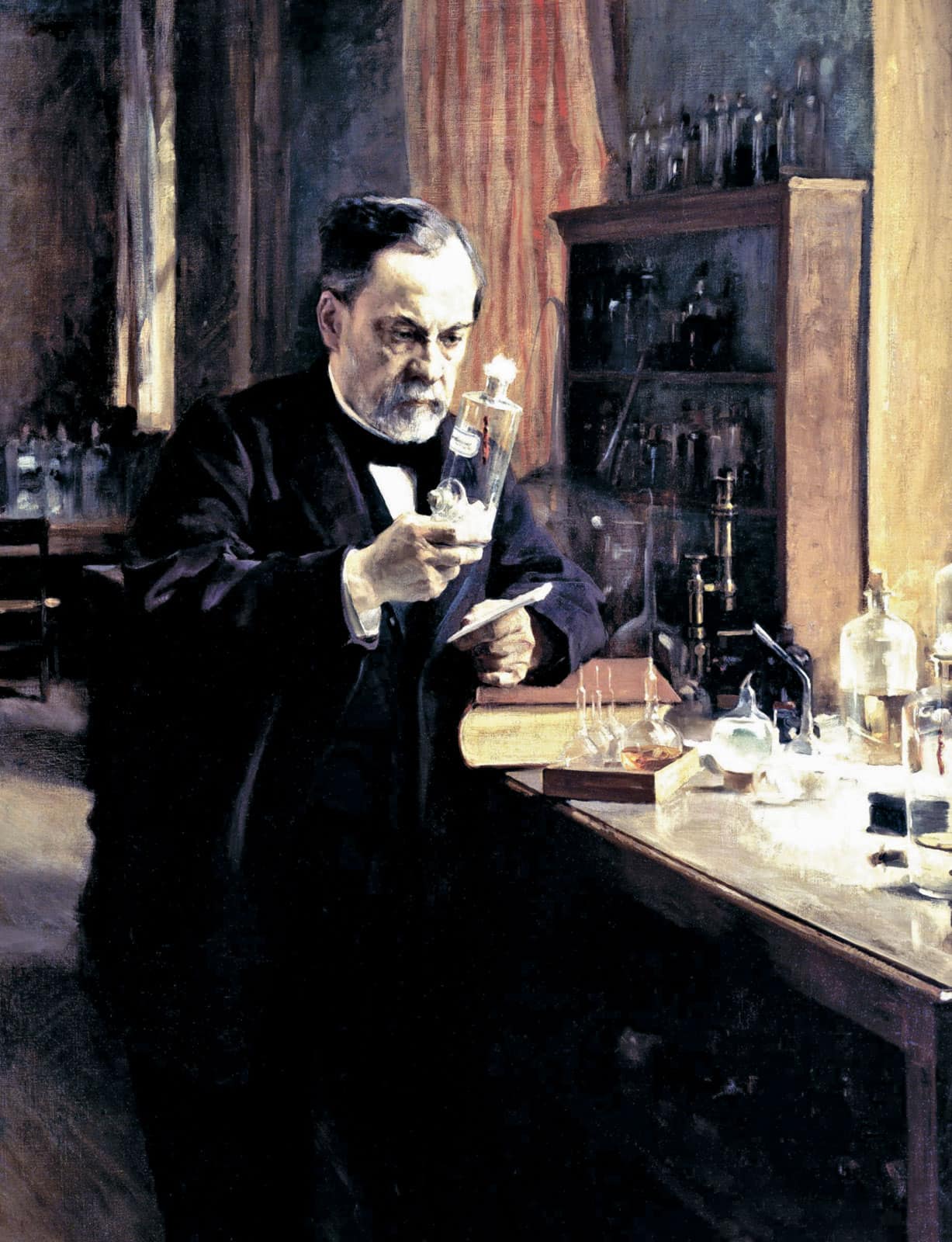Louis Pasteur is one of the most important scientists in history.
He discovered how microbes work and how they lead to disease.

Photo Source – Britannica
Louis was born in France on 27 December 1822 into a poor family. As a teenager he loved science and went on to become a science teacher and then a chemistry professor at the University of Strasbourg.
Louis and his wife had five children together, but, three of them died from typhoid fever. The death of his children led him to investigate infectious diseases in order to find a cure.
Through his research and experiments, Louis invented the practice of microbiology.
He noted that things rotted because they were reacting with microbes (germs) and realised that these microbes were responsible for illnesses.
He used this knowledge to investigate how food and drink were damaged by germs such as bacteria and mould. He discovered that heating the items killed the germs which meant they would be safer for longer. This process is called pasteurisation and is named after him.
Louis went on to help when the French silk market was under threat. He discovered that the silkworms had become diseased by microbes. When the microbes were killed the disease disappeared; this saved the silk industry.
He also modernised vaccinations and developed injections which stopped people from catching diseases. He successfully vaccinated a child against Rabies who had been bitten by an animal infected with Rabies.
In 1887 Pasteur established the ‘Pasteur Institute’ which is still being used today to fight infectious diseases.
It is due to his discoveries of how diseases are caused and how they are killed which led to doctors washing their hands and boiling their instruments prior to surgery, meaning many more people survived surgery.
Louis died in 1895 and is buried in the Cathedral of Notre Dame, Paris.
By MajorTim.space 2021-2022 Young Ambassador, Myle Ali Faraz (age 8)

